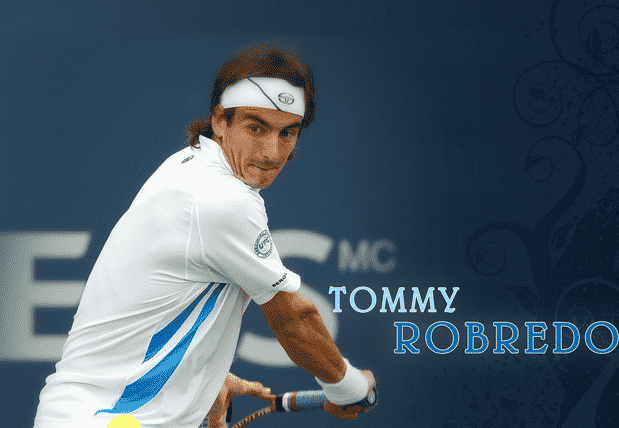Mental Strength – Your Head Needs To Be In The Right Place
Tommy Robredo gets it and I admire him. He understands that each point is worth the same as any other, that the match is only over when it is over and that every point is worth fighting for. And he keeps plugging away at every point.
In the French Open this year he fought back and won – THREE times – from being in the head-destroying position of being two sets behind to get to the quarter finals. Apparently that doesn’t happen very often. In fact it has happened twice. Ever.
Those who play will know that the pressure of being two sets behind even in a game of social tennis is immense. When you have a coach, salaries, it is your job, the game is being filmed and commentated and the tennis media is watching… it is 9 different types of HUGE!
This was also after he had dropped from his number 5 world ranking and been written off by almost everybody due to his injuries from 2011. Maybe he had stuff to prove – but don’t we all? He just didn’t let his head get in the way. He focused on moving that mountain – one small stone at a time.
The beautiful forehand passing shot he used today against Andy Murray in the last game – when he was 2 sets down, 5 games all and 40-LOVE down – to get to 40-15, was another example of his never giving up and playing hard to the last.
Successful people in politics and business share this characteristic – often described (by others) as sheer bloody mindedness. They refuse to give up and they keep practicing and doing the basics better and better and better.
To do this, you need to ignore the commentators (including the one in your own head) and focus – intensely and with all you have – on the task at hand. Ivan Lendl, who is Murray’s coach and an icon from my tennis playing youth, used to fiddle with the strings on his racket between EVERY point. The strings were fine – it was a focus thing. It kept away the noise of the crowds, the shouts and the visual distractions. I understand from reading about him at the time that he used the time between points to focus on the next point. He didn’t beat himself up about the point just lost or revel in the point just won – he focused on what he was going to do next. Where the serve would go, where he would push the ball, stretch his opponent and find the gap in the court.
When I coach, I get “in the room” and ignore all else. I switch off my phones and ignore iPads and laptops. It is intense – but I am totally with my client. I will have no-one else in the room. No spectators or distractions. Full immersion. It is exhausting for both of us – but it seems to work.
To perform well when speaking, negotiating, presenting or interviewing – full, deep, intense concentration is needed. It wakes up all the senses – it gets you in the zone. Afterwards it sometimes feels like having been in a film or having experienced an “out-of-body experience”. Whatever. It gets you to perform where you should be performing and prevents you short-selling yourself. Worth doing.

